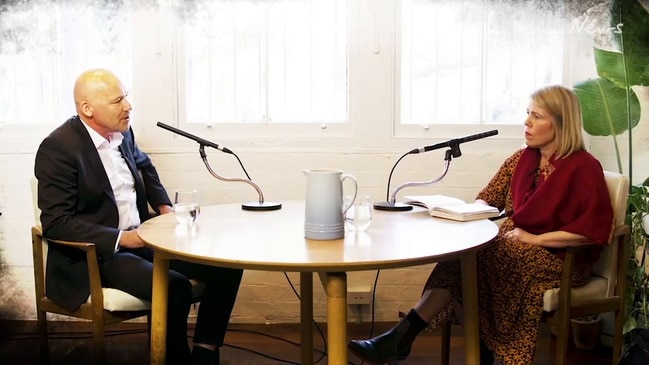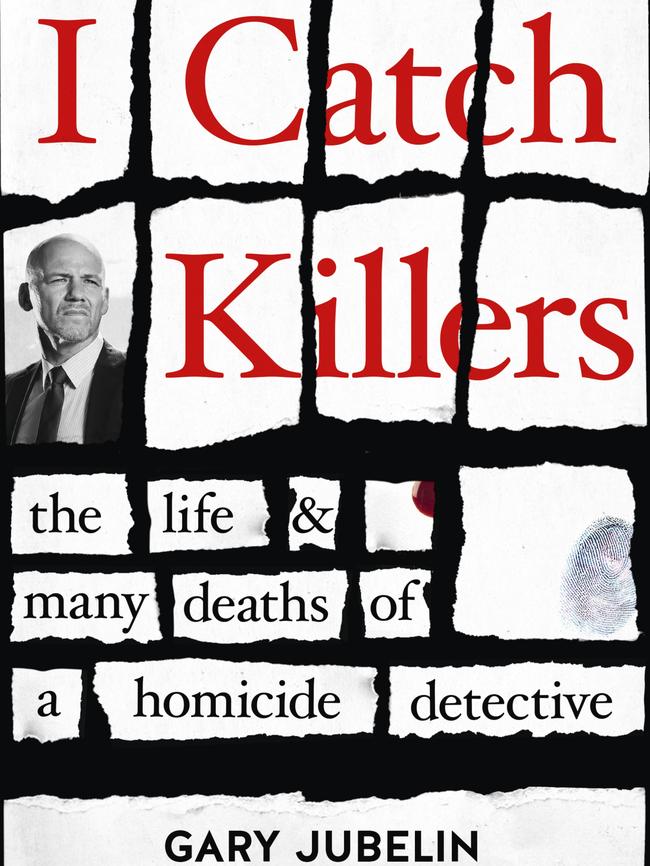Gary Jubelin recalls the problems surrounding the William Tyrrell case in his new autobiography
Crucial clues trampled, competing police priorities and a ‘pure evil’ paedophile - Gary Jubelin reveals the troubled history of the William Tyrrell case. Claire Harvey reports.

I Catch Killers
Don't miss out on the headlines from I Catch Killers. Followed categories will be added to My News.
Detective Gary Jubelin begged senior police not to publicly raid the home of a person of interest, Bill Spedding, in the William Tyrrell investigation, urging them to first gather intelligence on Mr Spedding.
Jubelin, whose explosive autobiography I Catch Killers is released on Thursday, reveals in the book the troubled history of the Tyrrell investigation, including a constant lack of resources and enormous backlog of material, and his concerns about crucial evidence being missed as detectives were overwhelmed.
He reveals police spoke to scores of known sex offenders who lived in the mid-North Coast region where William disappeared in 2014, including several who lived within a 30km radius of the spot where the child was last seen.
Bonus “I Catch Killers” podcast: Gary Jubelin’s most searing interview ever, introducing his explosive new book.
I Catch Killers: The Life and Many Deaths of a Homicide Detective, is published by HarperCollins Australia on Thursday, August 20 in paperback, e-book and audio. Pre-order your signed copy at Booktopia.
In extracts published exclusively today, Jubelin detailed how a decade before William’s disappearance he locked up Mr Spedding’s then brother-in-law, paedophile Jeffrey Hillsley, for murder and child rape.
Hillsley was “pure evil,” Jubelin writes: After being released from prison for child sex offences he murdered a man in order to get access to his 10-year-old daughter, whom he abducted and sexually assaulted.

Jubelin reveals in the book how he led the police hunt for Hillsley which ended in the girl’s rescue and a harrowing interview in which Hillsley admitted his crimes.
Hillsley was jailed for 30 years in 2005.
Mr Spedding has repeatedly denied any involvement in William’s disappearance and is now suing the NSW Police for misfeasance in public office, abuse of process and malicious prosecution. He is no longer a person of interest in the investigation.
In April 2015, during the investigation into William’s disappearance, Jubelin arrested and charged Mr Spedding over alleged historic child sex offences, including indecent assault and sexual intercourse, relating to two young sisters, aged three and six, in the 1980s.
Jubelin writes the charges arose from a Crimestoppers tip-off in the early days after William’s disappearance, and they prompted detectives to look closely at Mr Spedding, who had visited the home of William’s foster grandmother in Kendall shortly before William’s disappearance.
Jubelin writes he was concerned about the impact on Mr Spedding if charged.
“I’m about to pull the trigger on a guy’s life … charge him with these crimes and there was no way to hide it. Get it wrong and I destroy him,” he writes.

Mr Spedding continued to deny all allegations involving the sisters during his time in Cessnock jail, where he was in a cell with a convicted paedophile who also lived in Kendall.
Mr Spedding’s lawyer claimed in court the assaults could in fact have been committed by Jeffrey Hillsley, who was living in Victoria at the time and was also in contact with the girls. Lawyers for Mr Spedding also argued the Crimestoppers tip came from his ex-wife following a bitter divorce.
In July 2018 a District Court judge threw out the charges, saying no jury could say for certain that Mr Spedding was guilty of assaulting the girls.
In the book, Jubelin reveals that when Mr Spedding remained a person of interest in the Tyrrell matter, Jubelin fought hard against another detective’s decision to publicly raid Mr Spedding’s home and drain his septic tank, arguing instead police should adopt a “covert” strategy including listening to Mr Spedding’s conversations.
However Jubelin said that when he carried out checks, including covert investigations, he came to the conclusion Mr Spedding was most likely not involved. “That’s it. He didn’t do it,” Jubelin writes. “I update the … investigation plan to say that accepting on the balance of probabilities, Bill was not involved in William’s abduction and we need to refocus our investigation.”

The Tyrrell case was initially led by highly regarded veteran Detective Hans Rupp, who was due to retire in early 2015, with Jubelin to take over. It was a difficult investigation from the outset, with a huge amount of information flooding in, including from public tip-offs.
“Jubes, I need you to sort this out. It’s all over the place,” Homicide commander Mick Willing told Jubelin in December 2014, according to the book.
Jubelin writes that crucial opportunities were missed by police immediately after William’s disappearance, because the focus was on finding William alive.
“There are lots of ways to approach homicide investigations,” Jubelin said in an interview. “Hans approached it one way. I took another approach. Hans’ approach may well have worked — these are the judgment calls you make. We both had the same goal: finding out what happened to William.”

“It’s obvious how much was missed in those first hours and days when the local cops treated it as a missing-persons case and before Homicide was called in,” Jubelin writes. “Neighbours’ houses were not properly searched, cars came and left the street where William disappeared without being checked, and no crime scene was established.”
Jubelin writes that until he took over the case there was no written investigation plan and police computers showed over a thousand items including reports, statements and investigators’ notes still waiting to be reviewed.
“The failure to treat this at least as a potential abduction early on has made this work harder. Not least because the hundreds of people who helped with the search, thinking William was lost, were given free access to the road outside the house where he went missing, meaning they would have trampled over any forensic evidence. Nor do we have complete records of who took part in the search itself, among them SES volunteers, surf lifesavers and even a local pony club on their horses,” Jubelin writes.
When Mr Rupp declared his intention to search Mr Spedding’s home and business in January 2015, with media likely to be reporting live from the scene, Jubelin urged him to rethink.
“Get it right and we might find William’s body. But get it wrong, spook Bill before we have any real evidence against him, and we risk losing everything,” Jubelin writes, noting police had not checked Mr Spedding’s alibi for the time of William’s disappearance — that he was attending a grandchild’s school concert.

“But Hans is not persuaded and he is still running this show. I need to get the search stopped.”
Jubelin writes he was unable to persuade a senior officer to call off the raids, so called Homicide commander Mick Willing on his holidays, begging: “‘Mick, stop this.’ I don’t want these raids to happen.”
But Jubelin writes Mr Willing replied: “‘Gary, Hans is retiring in two weeks’ time. He’s been in the job for 40 years, just let him retire in peace.’”
The raids go ahead but no useful evidence is obtained, and a six-hour interview with Mr Spedding yields nothing useful, Jubelin writes. Police have also not yet interviewed dozens of known child-sex offenders living in the area around Kendall.
“How has it come to this, I think? Why has half of this work, at least, not already been done? A three-year-old has gone missing and we can’t bring our A game?”
Jo in Gary and Claire Harvey for an exclusive live event online at 6:30pm AEST on Wednesday, August 19 at True Crime Australia on Facebook.
Originally published as Gary Jubelin recalls the problems surrounding the William Tyrrell case in his new autobiography

